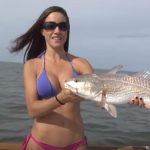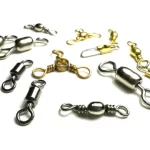The pleasure boats are gone and the water is now all yours. But don’t venture out for your next winter fishing trip without following these top ten tips:
- Check the bellies of fish you bring up. If you find silt, that’s an indication that the fish has been glued to the bottom. So take your time presenting the bait or lure, stay in one spot for a longer time and use presentations with smaller baits like drop shot or shaky heads. Find the deepest water close to shore and fish more vertically than horizontally.
- With the pleasure boating season over there are fewer potential rescuers to assist you in an emergency, so never fish alone. Leave a float plan behind with your spouse, friend, or anyone else who is willing to call authorities if you haven’t checked back in at a predetermined time.
- A spray of line conditioner, such as Reel Magic, will help keep your lines ice-free. Use a smaller line size so you can get better hooksets with less line resistance. Low stretch line is best in the winter as well.
- Wear layers of clothing — preferably synthetic or wool — but never cotton. It’s a poor insulator when wet.
- Use attractants such as Jack’s Juice, which can sprayed on a soft plastic lures. Fish are sluggish in winter and attractants encourage them to hold on longer.
- Bring along high-energy foods such as granola bars and warm drinks. It’s important to keep hydrated in winter’s dry air. Stay away from alcohol, which dilates blood vessels and cools your body’s core.
- Cold water drains energy and body heat rapidly. If you fall overboard, a life jacket can give you the time you need to pull yourself back in the boat before the effects of hypothermia set in. Vest styles can provide warmth both in and out of the water while automatically inflating life jackets allow great freedom of movement and fit over bulky winter clothing. Also, make sure you have a method to get back in the boat, such as a built-in boarding ladder or a short length of rope with loops for footholds that is firmly attached to a cleat or other fixed object.
- According to US Coast Guard boating fatality statistics, January’s and February’s cold weather represent the greatest fatality risk. Always check the weather before you go. With hypothermia a very real threat, sudden squalls can be deadly.
- Now is the time to disconnect water pressure and speed hoses behind the helm gauges to prevent freeze damage.
- When you’re done fishing and before you leave the launch ramp, trim the outboard motor all the way down, remove the kill switch and turn the engine over for a just a second to pump out any water that may still be inside the motor. Remove any mud or plant debris from the boat or equipment and thoroughly drain livewells or anywhere else water may have pooled to stop the spread of invasive species. Storing the boat high and dry for two days before fishing a different body of water can also help.
All credit for these great tips goes to Boat U.S. https://www.boatus.com/fishing/articles/top-ten-tips-for-winter-fishing.asp





